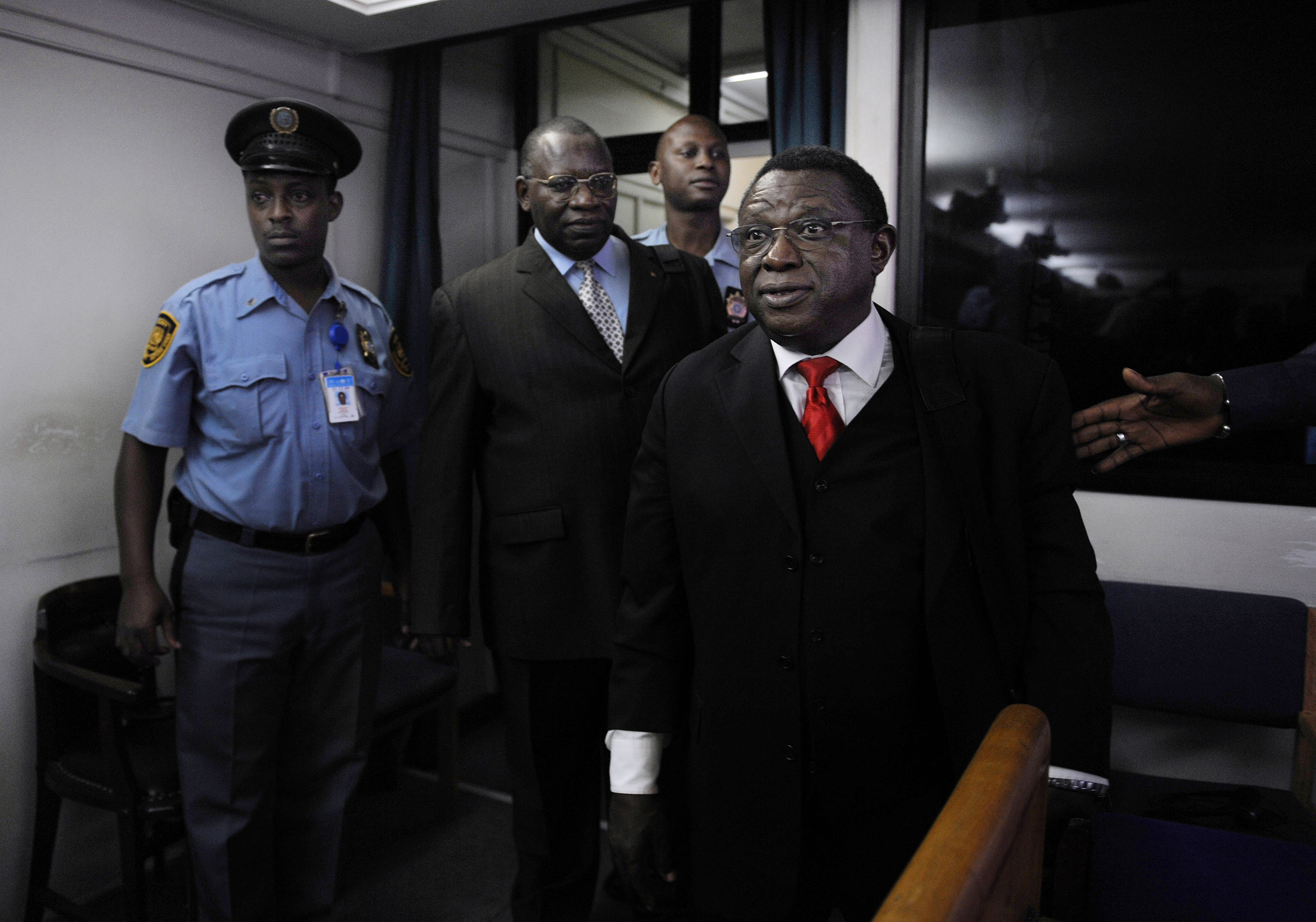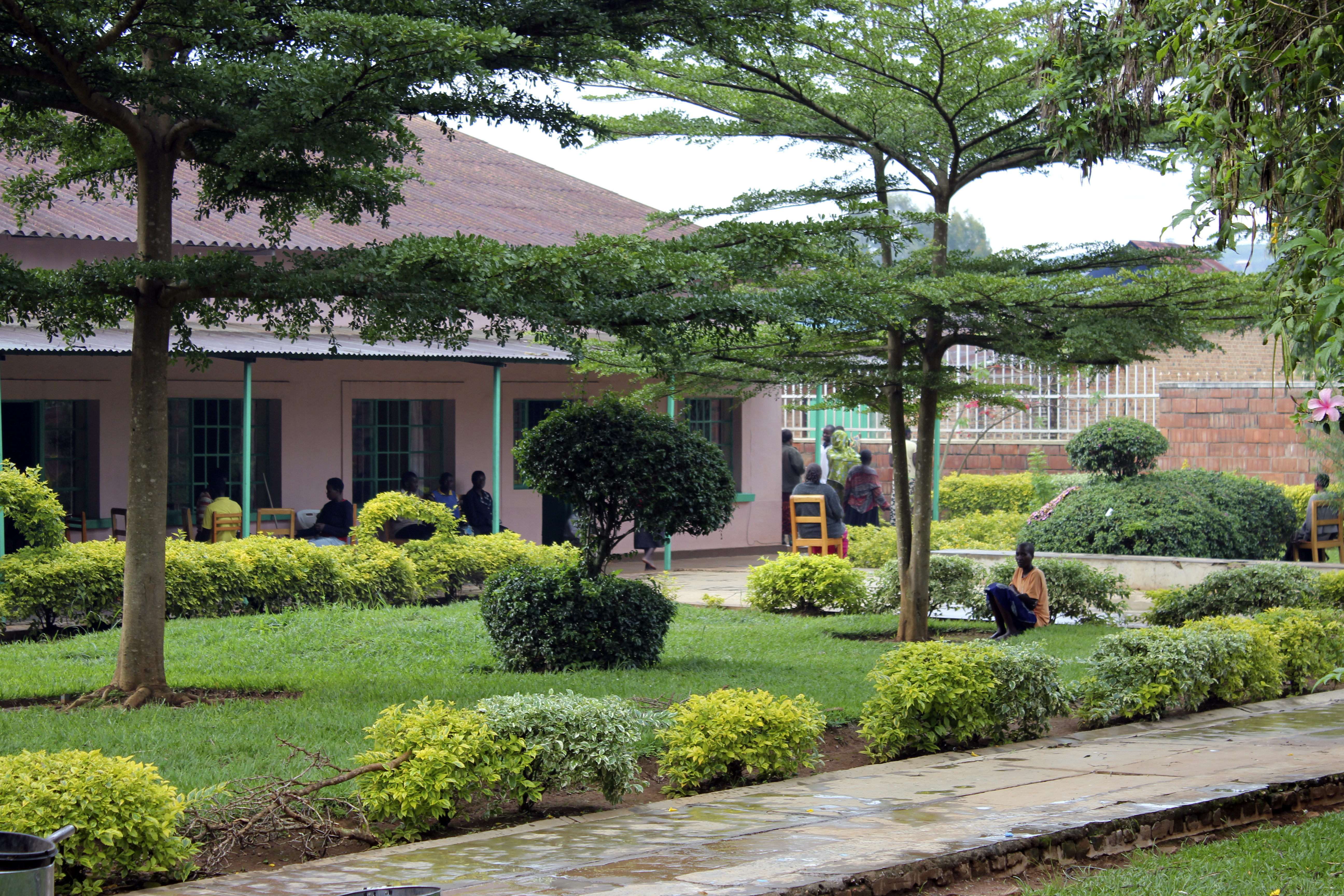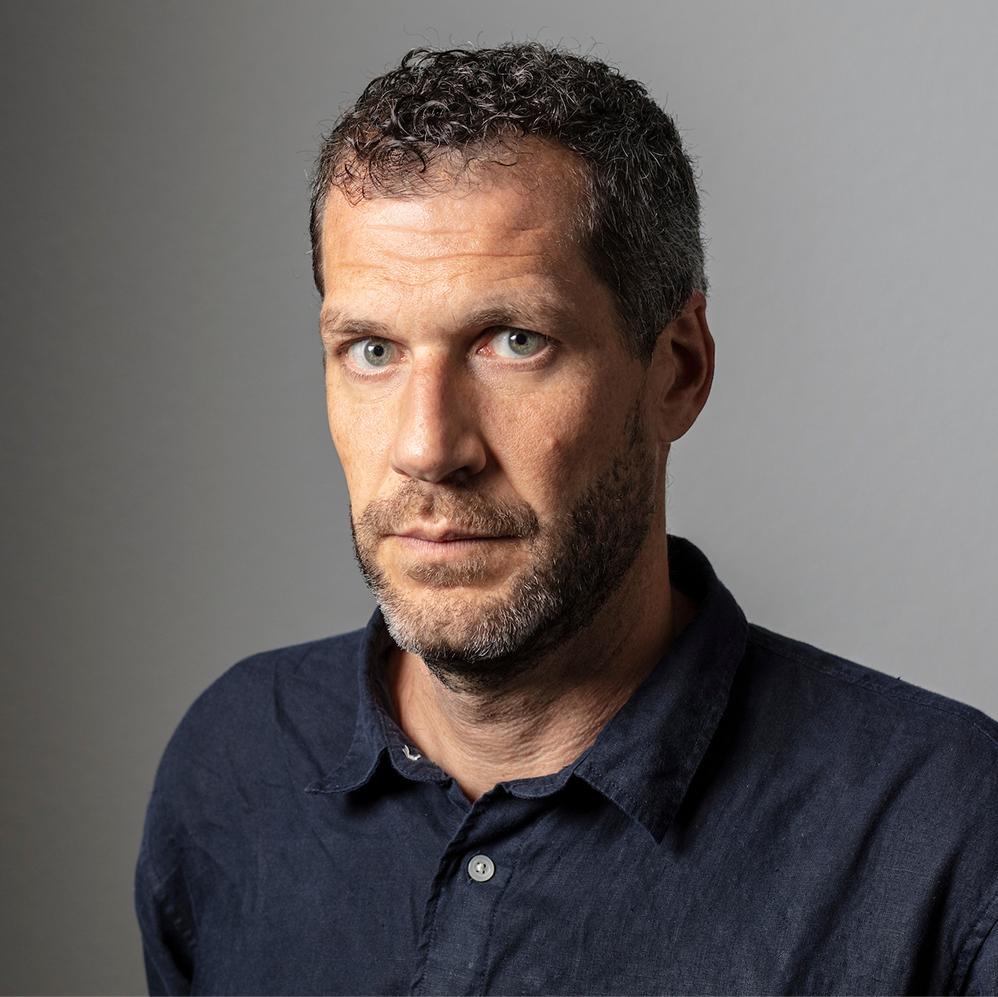‘International justice needs more visibility’

For the past 15 years a Swiss project has reported on the work of the International Criminal Tribunal for Rwanda (ICTR), often the main source of news on proceedings. Their reports will contribute to a new online portal on international justice.
Set up by the United Nations Security Council in the wake of the genocide in Rwanda, the ICTR has closed the first stage of legal proceedings. It still has to judge 15 appeal cases before wrapping up at the end of 2014.
Since 1997, journalists of the Hirondelle News Agency (funded by the Hirondelle Foundation of Lausanne) have followed the entirety of the proceedings, which were held in Arusha in northern Tanzania.
This is a long-term job which has borne fruit, according to Jean-Marie Etter, director general of the Foundation, speaking on the 19th anniversary of the genocide.
swissinfo.ch: How do you view Hirondelle’s 15-year coverage of the ICTR?
Jean-Marie Etter: Our goal is to make the workings of international justice accessible and comprehensible to the Rwandan population, which sometimes had difficulty accepting that those responsible for the genocide should be judged abroad by foreigners. The challenge was made more difficult by the significant control imposed by the Rwandan government on all information concerning the genocide.
Given the circumstances, the results have been remarkable. The national radio and the press, private Rwandan radio stations and the media of neighbouring countries broadly relayed the news reports published daily by Hirondelle News Agency for 15 years.
The International Criminal Tribunal for Rwanda (ICTR) was established by the United Nations Security Council in Resolution 955 on November 8, 1994. It is the second ad hoc tribunal set up by the United Nations after the International Criminal Tribunal for the former Yugoslavia (ICTY) in 1993.
By passing a life-long prison sentence on former prime minister Jean Kambanda in 1998, the ICTR for the first time in the history of international justice applied the Convention on the Prevention and Punishment of the Crime of Genocide from 1948 to convict a person of genocide.
A total of 65 people have been judged by the ICTR since 1994. The tribunal will definitively close its doors at the end of 2014, once it has dealt with all outstanding appeal cases. The ICTR has until now acquitted 12 people, of whom five have been able to find a host country.
According to an agreement between the United Nations and the government of Tanzania, convicted and acquitted nationals must leave the country’s territory for good. Only four nations – among them Switzerland – have up until now accepted to host those who have been acquitted.
According to UN estimates, the genocide in Rwanda claimed almost 800,000 victims between April 6 and July 4, 1994; most of them were Tutsis.
(Sources: Hirondelle News, Trial, AFP)
swissinfo.ch: Was it easy to detach yourselves from the division between victors and vanquished, in other words Hutus and Tutsis, which still divides Rwanda 20 years after the genocide?
J-M.E.: We were able to count on a very competent team of journalists, comprising Tutsis and Hutus. Knowing that the slightest comma could have huge consequences, they dedicated themselves to treating the proceedings of the court in an extremely rigorous and factual manner, sometimes even to the point of obsession. That is what allowed the agency to transcend the division and to be recognised and appreciated unanimously by the diplomatic and scientific international community, itself partially divided into two camps.

More
Scars of the Rwandan genocide remain open
swissinfo.ch: Were your journalists subject to pressure of censorship on the part of the Rwandan authorities?
J-M.E.: The Rwandan authorities sometimes demanded some corrections which we accepted when they were justified, but we also often refused. But once again, knowing that they were being closely watched, our journalists demonstrated a high level of vigilance.
As well as coverage of the work of the tribunal at Arusha, Hirondelle News Agency was the only one in the world to precisely and completely follow the Gacaca [popular tribunals put in place in Rwanda to judge the more than two million Hutus accused of participation in genocide and which finished returning their verdicts in June 2012]. We were helped in this task by the authorities, which we consider as recognition of the quality of our work.
swissinfo.ch: Do you have any regrets?
J-M.E.: My main disappointment concerns the Western media, which gave very little coverage to the work of the tribunal. In the logic of current journalism, a genocide, especially one on the African continent, no longer sells after a month. Justice time does not move as fast as media time, which made 15 years of proceedings seem like an eternity.
Put it like this: in the big press room of the tribunal in Arusha, journalists could hardly find seating room for the first case. Today our agency reporters feel quite alone there.
Asked via Facebook for their views, many Rwandans described the International Criminal Tribunal for Rwanda (ICTR) as a “failure” which hadn’t investigated the 1994 genocide thoroughly enough.
“The tribunal spent an enormous amount of money to ultimately judge only a ridiculous number of people,” one reader told swissinfo.ch.
International justice had failed in its mission to get justice for the victims, said another: “some known perpetrators were acquitted for unclear reasons; there has been no compensation or reparations for the victims.”
The “double genocide” theory was popular among those who denounced an “international justice system which has behaved like a conqueror”. Winners judged losers, someone else wrote, in order to defend personal interests and power.
swissinfo.ch: Will those 15 years of work be forgotten now?
J-M.E.: Certainly not! The thousands of reports published, especially in Kinyarwanda, the national language of Rwanda, constitute a unique archive. We are going to make the most of them so that future generations who did not experience the genocide, but also the scientific community, will benefit.
By the way, the plan from the beginning was to accompany this project with specific training on the functioning of international justice. Journalists from the region of the Great Lakes, Kenya, Sudan and Central Africa are from now on capable of dealing with these complex problems.
Thanks to those skills and the support of partners in the international community, we hope to launch by the end of the year an internet portal, which will be a point of reference for international justice. This site in several languages will allow professionals and citizens of the countries concerned to find rapidly all the information on the International Criminal Court and the special tribunals. Because the work of international justice needs to be more visible to exist.
The Hirondelle Foundation is a Swiss non-governmental organisation of journalists and humanitarian aid professionals. Since 1995, it has been creating or supporting independent, civic-minded news media in conflict, post-conflict and crisis zones.
It works to develop media outlets with popular appeal and a wide audience. Its top priority is to be media credible through fact-based, professional journalism. It does not allow its staff to express personal opinions on air. Foreign journalists never go on air, but only journalists from the country concerned. Broadcasting is in local languages insofar as possible. The main working languages within the organisation are English and French.
Hirondelle Foundation works to create or support sustainable media that can run themselves without help from the foundation and international aid donors. To this end, it also develops media management, advertising and revenue generating structures that can help ensure the financial and institutional independence of its media in the longer term.
Hirondelle Foundation’s projects are financed mostly by governments.
(Source: Hirondelle Foundation)
(Translated from French by Clare O’Dea)

In compliance with the JTI standards
More: SWI swissinfo.ch certified by the Journalism Trust Initiative

You can find an overview of ongoing debates with our journalists here. Please join us!
If you want to start a conversation about a topic raised in this article or want to report factual errors, email us at english@swissinfo.ch.